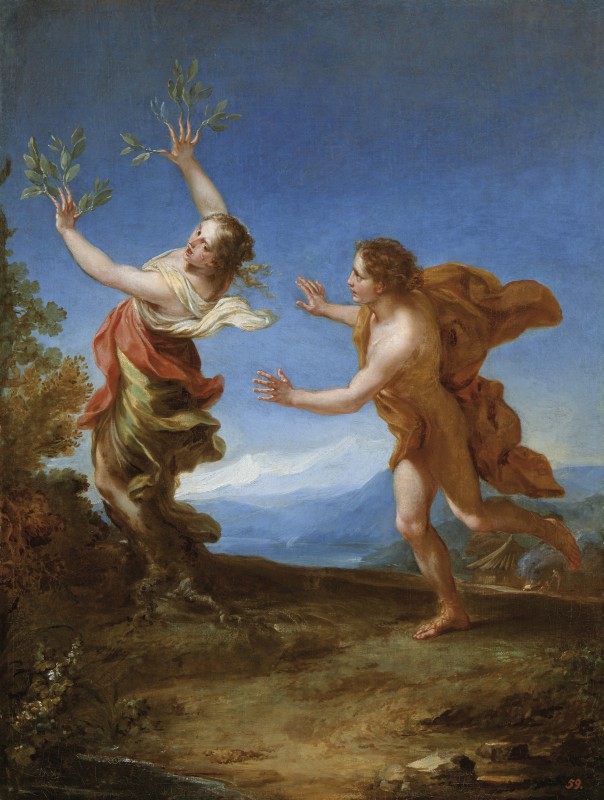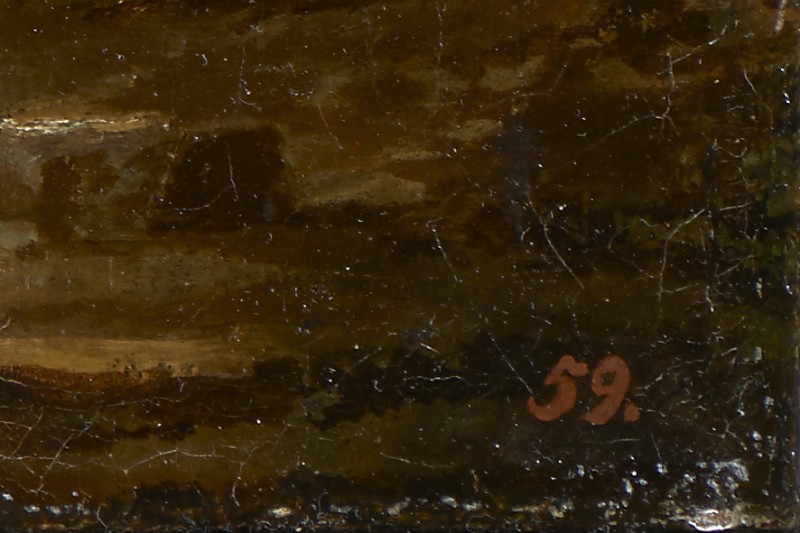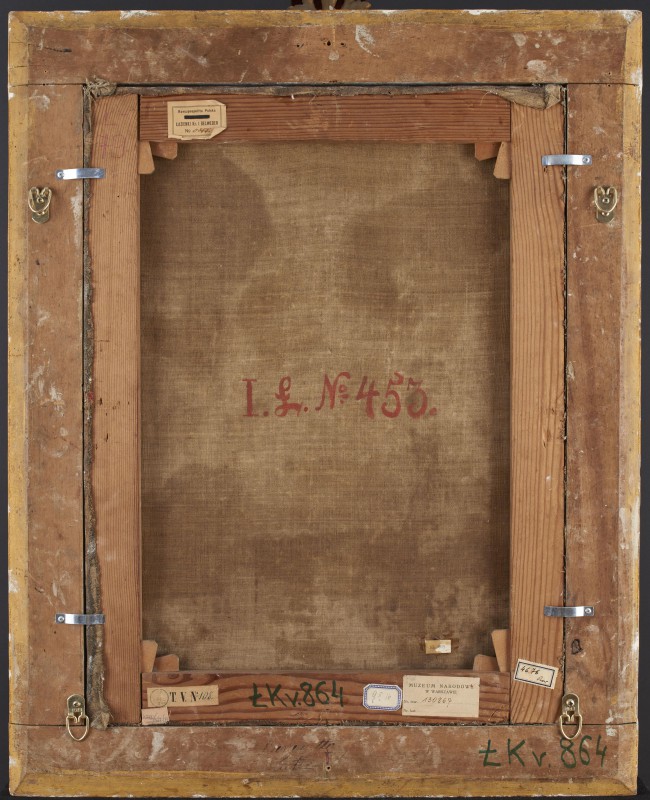Apollo and Daphne
- Date
- 1707-1708
- Object type
- painting
- Technique
- oil
- Material
- canvas
- Dimensions
- 62,3 x 46,7 cm
- Acquisition date
- 1782
- Location
- The Palace on the Isle - Picture Gallery, ground floor
- Marks and inscriptions
- red number 59 of the Stanisław August collection, bottom right
- Place of Origin
- Italy (Europe)
- Owner
- The Royal Łazienki
- Museum number
- ŁKr 864
Ovid, Metamorphoses 1:545–52
The nymph Daphne, fleeing from Apollo’s amorous advances, and in the process of being transformed into a laurel tree thanks to an enchantment cast upon her by her father, the god Peneus, whom she begged help save her—is one of the most frequently depicted episodes in painting taken from Ovid’s Metamorphoses. The scene to the right, in the distance, showing a man next to the burning thatched building also alludes to the Metamorphoses. …
The painting comes from the collection of an outstanding connoisseur and bibliophile, Karl Heinrich von Heinecken (1706–1791), curator at the Gemäldegalerie and Kupferstichkabinett in Dresden. ... The painting came into the collection of Stanisław August at the end of 1782 at the latest, as it is recorded in the catalogue of the king’s collection drawn up in January 1783. It is, however, more likely that it was bought in the 1770s with the intermediation of the former owner, Karl von Heinecken—Marcello Bacciarelli’s mentor and friend. …
Luti painted mostly historical and religious pieces in the Baroque grande manière.His oeuvre contains relatively fewer mythological compositions. Bowron dates Apollo and Daphne to 1707–08. In this period, Luti’s art came under the influence of Carlo Maratta, and he gradually moved away from the spontaneity and richness of the Baroque language in favour of the classical manner, which is characteristic of his later works. These paintings contain fewer figures, the composition is more ordered, with more emphasis on the purity of form and a balanced and subtle palette. Maratta’s style influenced Luti’s large format religious paintings as well as his small cabinet pictures on mythological subjects. It is obvious that Luti’s Apollo and Daphne—the nymph raising her hands in a characteristic gesture—was inspired by Maratta’s famous painting on the same subject ... . [See D. Juszczak, H. Małachowicz, The Stanisław August Collection of Paintings at the Royal Łazienki. Catalogue, Royal Łazienki Museum, Warsaw 2016, no. 66, p. 255.]





